What are HVAC Systems ?

Here we are going to know about HVAC Systems. These systems are milestones of building mechanical systems that provide thermal comfort for occupants accompanied with indoor air quality. HVAC systems can be classified into central and local systems according to multiple zones, locations and distribution. Primary HVAC includes heating equipment, ventilation equipment and cooling or air conditioning equipment. Central HVAC system locate away from buildings in a central equipment room and delivers the conditioned air by a delivery ductwork system. Central HVAC systems contain all air, air-water, all-water systems. Local HVAC systems can located inside a conditioned zone and no requirement for ductwork. Local systems include local heating, local air conditioning, local ventilation and split systems.
Introduction of HVAC Systems
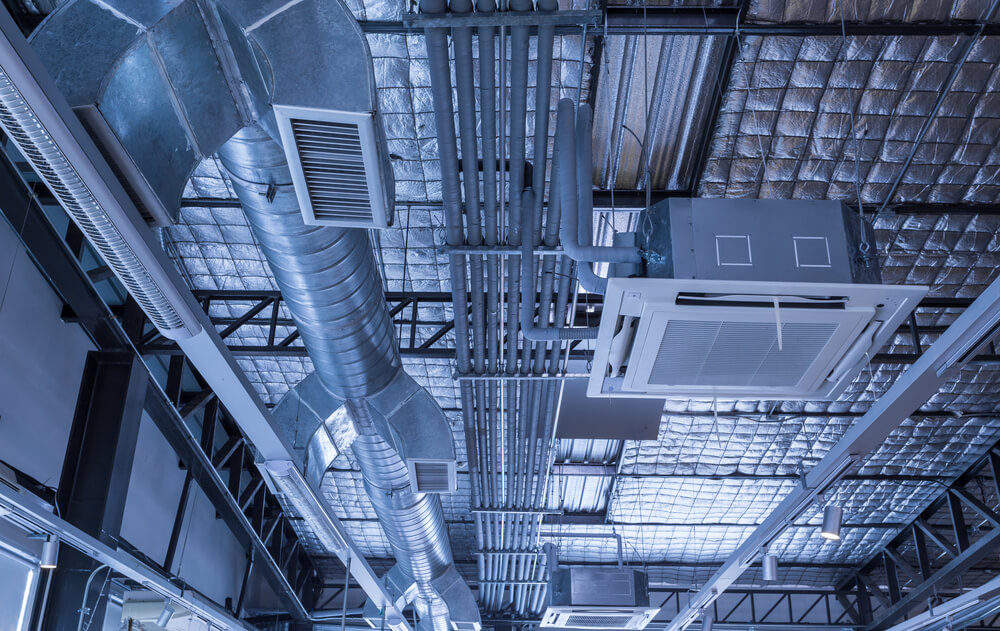
Heating, Ventilation and Air Conditioning System is designed to get the climate needs of comfort of occupants & process. HVAC Systems are used in different types of buildings such as industrial, commercial, residential & institutional. The main purpose of HVAC system is to satisfy the thermal comfort of occupants by adjusting & changing the outdoor air conditions. The selection of hvac systems in a given building depends on the climate, age of building, owner of building and designer of project, budget and design of building. HVAC Systems can be classified according to necessary processes and distribution processes. Such as: Heating Process, Cooling Process, Ventilation Process, Humidification and Dehumidification Process. By using suitable equipment we can achieve these processes. Such as: Heating Systems, Cooling Systems, Ventilation Fans & Dehumidifiers. The HVAC System needs distribution systems to deliver the required amount of air. The distribution system varies according to refrigerant type and delivering method such as: Air Handling Equipment, Fan Coils, Air Ducts & Water Pipes.
HVAC System Selection Process
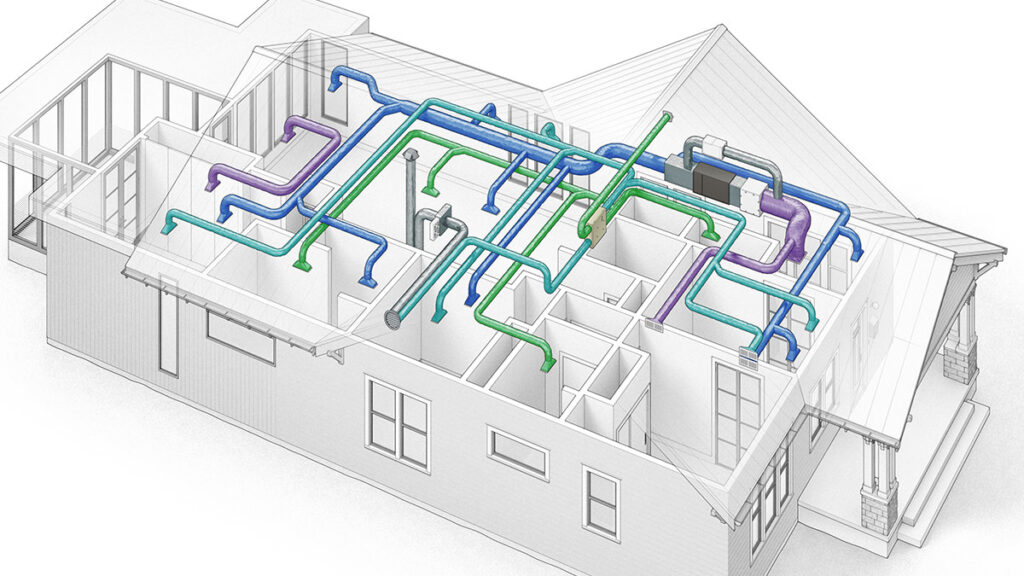
System selection depends upon three factors including building construction, climate conditions and owner desire. The design engineer is responsible for considering various systems and recommending more than one systems to meet the goal and satisfy the owner of the building. Some criteria can be considered such as climate change, building capacity, spatial requirements, cost, life cycle, reliability and flexibility.
Basic Components of HVAC Systems
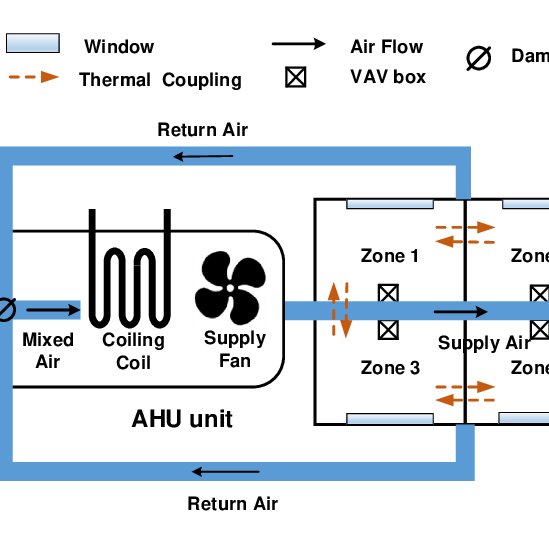
The basic components of an HVAC System that gives conditioned air to satisfy the thermal comfort of space and occupant to achieve the indoor air quality. 1- Mixed Air Plenum & Outdoor Air Control. 2- Air Filter. 3- Supply Fan. 4- Exhaust Or Relief Fans & An Air Outlet. 5- Outdoor Air Intake. 6- Ducts. 7- Thermal Devices. 8- Return Air System. 9- Heating & Cooling Coil. 10- Self Contained Heating or Cooling Unit. 11- Cooling Tower. 12- Boiler. 13- Control. 14- Water Chiller. 15- Humidification & Dehumidification Equipment
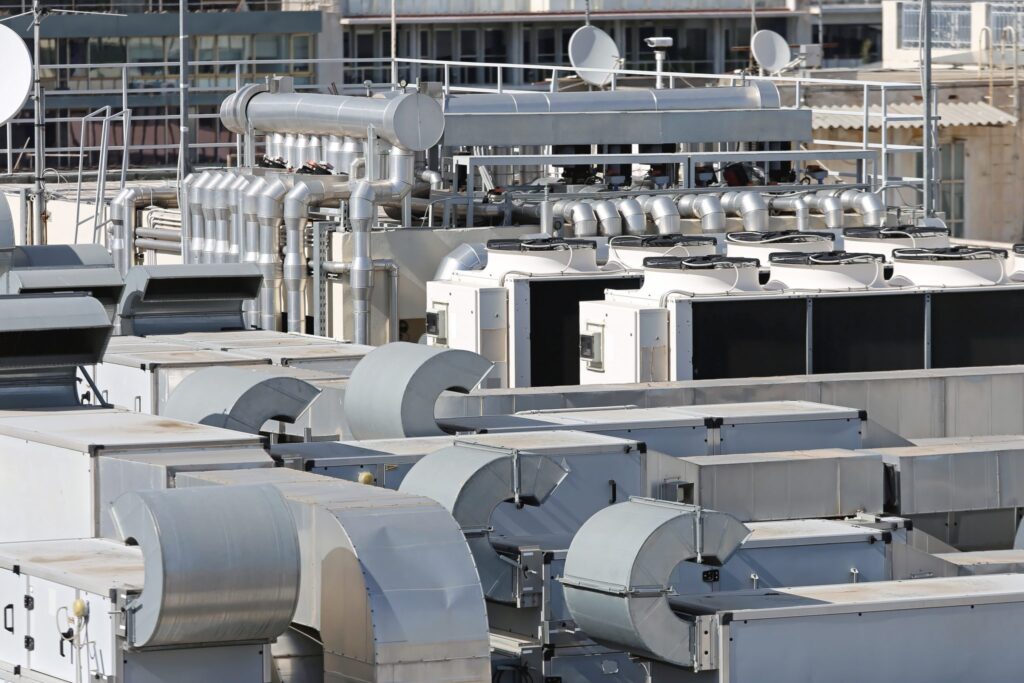
Classification of HVAC Systems
The major classification of hvac system is central HVAC system and Local HVAC system. Types of a system depend upon addressing the primary equipment location to be centralized as conditioning entire building as a whole unit or local as separately conditioning a specific zone as a part of a building. Therefore, the air and water distribution system should be designed based on system classification and the location of primary equipment.
| CRITERIA | CENTRAL SYSTEM | LOCAL SYSTEM |
| Temperature, Humidity & Space Pressure | Fulfilling any or all design parameters | Fulfilling any or all design parameters |
| Capacity Requirements | Considering HVAC diversity factors to reduce the installed equipment capacity, Significant first cost and operating cost | Maximum capacity is required for each equipment, Equipment sizing diversity is limited |
| Redundancy | Standby equipment is accommodated for troubleshooting and maintenance, | No backup or standby equipment |
| Special Requirements | An equipment room is located remote from the building, Installing secondary equipment for air and water distribution | Possible of no equipment room is needed, Equipment may be located on the roof and the ground adjacent to the building |
| First Cost | High capital cost | Affordable capital cost |
| Operating cost | More significant | Less significant |
| Maintenance cost | Low cost | High cost |
| Reliability | Reliable for long period use | Reliable for short period use |
| Flexibility | More flexible because of backup equipment | Less flexible because there is backup unit |
HVAC System Requirements
There are four basic requirements of hvac systems. 1- Primary Equipment. 2-Space Requirement. 3- Air Distribution. 4-Piping
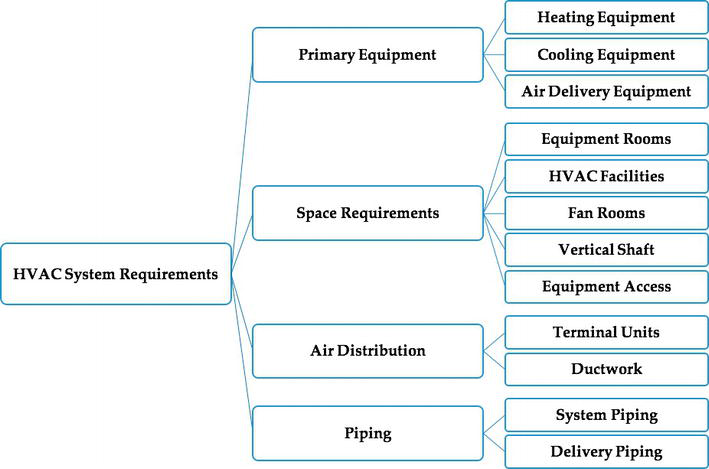
Repair Guru Service Chandigarh, India.
We are one of the best leading HVAC Repair Companies in India. Repair Guru Service offers best, reliable, honest and satisfactory installation, repair, service with perfect maintenance of HVAC Systems. We have Highly Trained, Well Experienced & Committed Staff for each work. Our service locations are Tri City Chandigarh, Mohali, Panchkula, Punjab, Haryana, Himachal Pradesh, Uttarakhand, Uttar Pradesh, Tamil Nadu, Kerala, Andhra Pradesh, Telangana, Delhi & All Over India. In abroad we deliver our services like HVAC Installation, HVAC Repair, HVAC Service & HVAC Maintenance in Dubai, Kuwait, Qatar, Saudi Arabia & All Over UAE. Heating repair and Cooling repair. We are HVAC Contractor.
